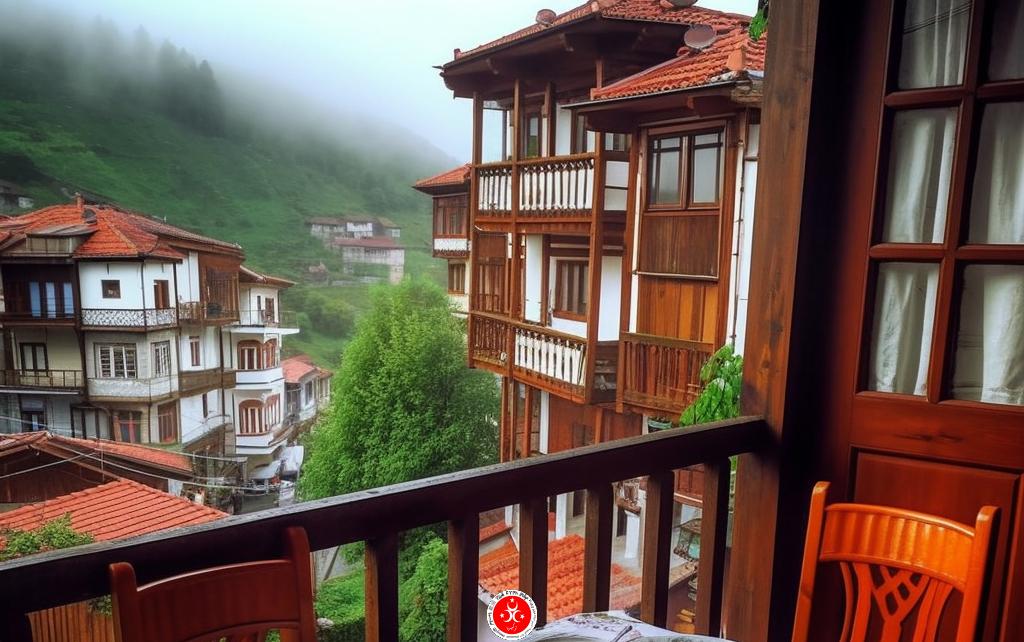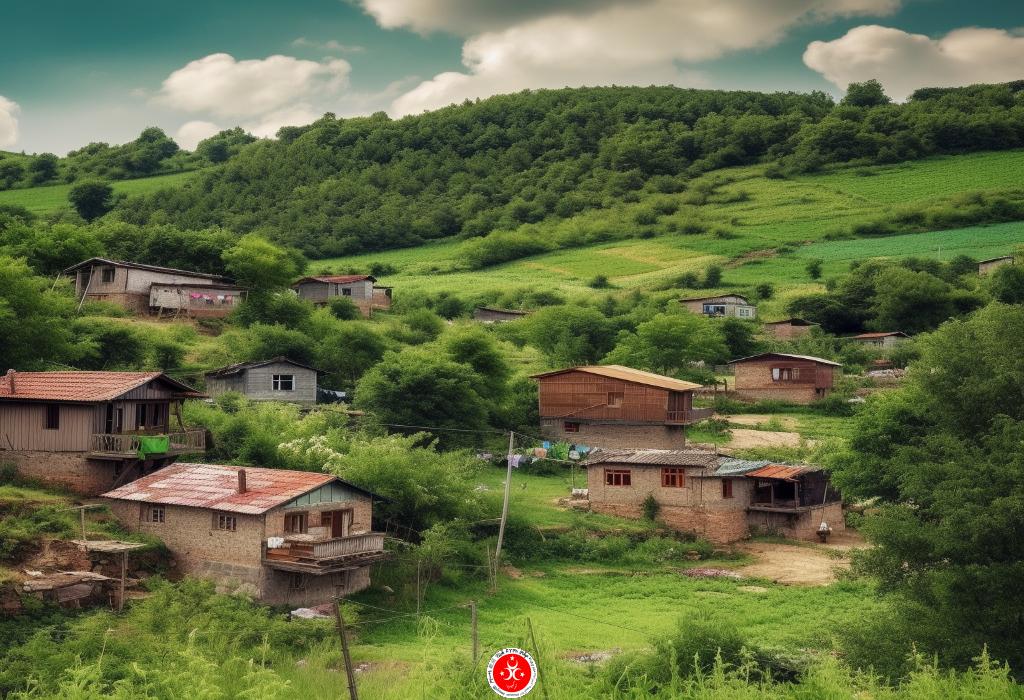Table of Contents
Discover the hidden gems of Rural Tourism in Turkey in this comprehensive guide, exploring its rich cultural heritage, breathtaking landscapes, and authentic experiences that offer a unique journey through time and culture.
Let’s dive into the mesmerizing world of rural Turkey, a land where the past meets the present, and authentic experiences await travelers in search of adventure and inspiration.

I. A Land Steeped in History and Natural Beauty
As I strolled through the ancient streets of a small Turkish village, I couldn’t help but feel a sense of awe. Here I was, miles from home, yet I felt a deep connection to this place and its people. Rural tourism in Turkey offers a unique window into the country’s rich cultural heritage, breathtaking landscapes, and mouthwatering cuisine.
Turkey’s historical roots stretch back thousands of years, and its rural regions are a treasure trove of historical and cultural attractions. From ancient ruins and traditional villages to UNESCO World Heritage Sites, rural Turkey is a paradise for history buffs and cultural enthusiasts alike.
II. The Rich Cultural Heritage of Turkey
A Brief History of Turkey
Throughout its storied past, Turkey has been home to numerous civilizations, including the Hittites, Phrygians, Lydians, and Byzantines. This diverse history has left an indelible mark on the nation’s rural areas, where you can still find echoes of these ancient peoples.
Cultural and Historical Attractions in Rural Turkey
- Ancient Ruins – Explore the remnants of ancient civilizations, such as Ephesus, Hierapolis, and Aphrodisias. These archaeological sites offer a glimpse into the lives of the people who once called these lands home.
- Traditional Villages – Discover the timeless charm of rural life in villages like Safranbolu, Beypazarı, and Şirince. These well-preserved settlements are living museums, showcasing the architectural styles and customs of bygone eras.
- UNESCO World Heritage Sites – Delve into the rich history of Göbekli Tepe, Hattuşa, and the ancient city of Troy, all of which have earned recognition for their cultural significance.

III. The Natural Wonders of Rural Turkey
Unique Landscapes and Geographic Features
- Cappadocia – This otherworldly landscape is renowned for its fairy chimneys, underground cities, and cave dwellings. A hot air balloon ride at sunrise is a must-do experience for any visitor.
- Pamukkale – Marvel at the striking white travertine terraces formed by mineral-rich hot springs. Nearby, the ancient city of Hierapolis offers a fascinating glimpse into the past.
- Mount Nemrut – Ascend to the summit of this sacred mountain, where colossal stone statues of ancient gods watch over the landscape.
National Parks and Nature Reserves
- Kaçkar Mountains National Park – Hike through alpine meadows, glacial lakes, and dense forests in this pristine wilderness area.
- Lake Van – This enormous, saline lake is home to unique wildlife and surrounded by breathtaking landscapes.
- Butterfly Valley – Venture into this secluded canyon, where hundreds of butterfly species thrive in a lush, untouched environment.
IV. The Allure of Turkish Cuisine
Turkey’s regional culinary traditions are as diverse as its landscapes. From the aromatic spices of the southeast to the fresh, Mediterranean flavors of the Aegean coast, each region offers its own unique gastronomic delights.
- Farm-to-table experiences – Visit local farms and sample the freshest ingredients, many of which are unique to the area.
- Cooking workshops – Learn to prepare traditional dishes alongside local chefs, gaining a deeper appreciation for Turkish cuisine.
V. Rural Tourism Experiences in Turkey
- Village guesthouses – Immerse yourself in the local culture by staying in a traditional village guesthouse, where you can experience the warm hospitality of your hosts.
- Boutique hotels – Enjoy the perfect blend of modern comforts and traditional charm at boutique hotels in rural settings.
- Eco-lodges – Connect with nature and minimize your environmental impact by staying at an eco-lodge, where sustainability is a top priority.

Local Festivals and Celebrations
Experience the vibrant spirit of Turkey by participating in local festivals and celebrations, such as the:
- Camel wrestling festival in Selçuk
- Cherry festival in Alaşehir
- festival celebrated across the country
Hands-on Cultural Experiences
- Artisan workshops – Learn the ancient art of pottery, weaving, or woodcarving from skilled craftsmen in rural villages.
- Agricultural tourism – Participate in the harvest of saffron, olives, or grapes, and gain a deeper understanding of Turkey’s agricultural heritage.
- Traditional sports and activities – Try your hand at archery, oil wrestling, or equestrian games, some of the country’s traditional pastimes.
VI. The Socioeconomic Impact of Rural Tourism
Rural tourism not only offers an enriching experience for travelers but also provides economic benefits for local communities. By supporting local businesses and preserving cultural heritage, rural tourism plays a vital role in sustainable development and empowering women and youth in rural areas.
VII. Challenges and Opportunities in Rural Tourism Development
While rural tourism in Turkey is undoubtedly an asset, it is not without its challenges. Ensuring adequate infrastructure, accessibility, and environmental conservation is crucial for sustainable growth. Balancing tourism and cultural preservation is also essential to maintain the authenticity of rural experiences.
VIII. Tips for Travelers: How to Experience Rural Turkey
Best Time to Visit
Turkey’s diverse climate makes it a year-round destination, with each season offering unique experiences. However, spring (April to June) and autumn (September to November) are ideal times to visit rural areas, thanks to mild temperatures and fewer crowds.
Responsible Travel Practices
- Respect local customs and traditions
- Support local businesses and artisans
- Minimize waste and use resources responsibly
Planning and Resources
- Consult reputable guidebooks and travel blogs
- Engage local tour operators specializing in rural tourism
- Use online resources, such as the Ministry of Culture and Tourism’s website
IX. Conclusion
Rural tourism in Turkey offers an unparalleled opportunity to explore the country’s rich history, diverse landscapes, and vibrant culture. By embracing responsible travel practices and supporting local communities, we can ensure that these precious experiences remain available for future generations. So pack your bags, and prepare to embark on a journey through time and culture in the captivating world of rural Turkey.

Frequently asked questions
Q: What is rural tourism in Turkey
A: Rural tourism in Turkey refers to the exploration of the country’s lesser-known rural areas, focusing on its rich cultural heritage, natural wonders, and authentic experiences that showcase traditional Turkish life.
Q: When is the best time to visit rural Turkey
A: The best time to visit rural Turkey is during the spring (April to June) and autumn (September to November) when temperatures are mild and there are fewer crowds.
Q: What types of accommodations can I expect in rural Turkey
A: In rural Turkey, you can find a variety of accommodations, including village guesthouses, boutique hotels, and eco-lodges, all offering a unique blend of tradition and comfort.
Q: What are some must-visit historical and cultural attractions in rural Turkey
A: Some must-visit attractions include ancient ruins like Ephesus and Hierapolis, traditional villages like Safranbolu and Beypazarı, and UNESCO World Heritage Sites like Göbekli Tepe and Hattuşa.
Q: How can I ensure responsible travel while exploring rural Turkey
A: To practice responsible travel in rural Turkey, respect local customs and traditions, support local businesses and artisans, and minimize waste and resource usage during your trip.






